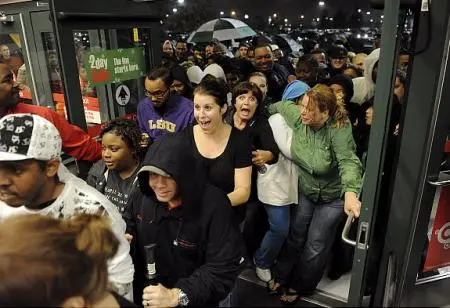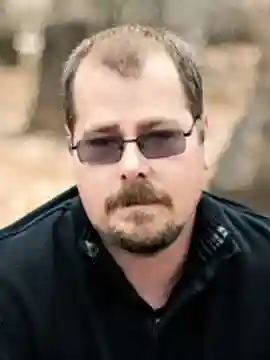Death
The irreversible cessation of all vital functions especially as indicated by permanent stoppage of the heart, respiration, and brain activity : the end of life. *
No subject has held greater weight in regard to the human condition then Death. Sex, love, hatred, greed, envy, etc. -- none of it holds a candle to the time and thought that’s been put into examining the Big D. It is, of course, with good reason. Death is the unknown integer, the single aspect of being human we can know absolutely nothing about. But in my opinion, it isn’t the physical act of dying that we fear, but what comes after.
The Afterlife
In philosophy, religion, mythology, and fiction, the afterlife (also referred to as life after death, the Hereafter, the Next World, or the Other Side) is the concept of a realm, or the realm itself (whether physical or transcendental), in which an essential part of an individual's identity or consciousness continues to reside after the death of the body in the individual's lifetime. According to various ideas of the afterlife, the essential aspect of the individual that lives on after death may be some partial element, or the entire soul, of an individual, which carries with it and confers personal identity.
What does become of us? What happens after the physical body stops? Does the soul linger? Does it travel to a paradise or damnation? Is it reborn into the body of a new being? Or does it just cease to exist? Are the soul and the afterlife simply fairy tales we’ve told ourselves over the centuries to comfort our fear of the great unknowable? Why do we want to believe that the possibility of immortality exists, even if that immortality is a hellish bastardization of life?
Zombie
A person who is or appears to be lifeless, apathetic, or totally lacking in independent judgment; automaton; a corpse brought to life in this manner.
The zombie is, in my opinion, the very essence of that bastardization. Much like the vampire, the zombie is a romanticized version of the afterlife based, partially—and particularly the modern version of the monster—on a distorted version of the Eucharist of Christ:
"Unless you eat the flesh of the Son of Man and drink his blood, you do not have life within you... “
But unlike the vampire, which over the last twenty years has become a thing of teenage fantasies, the zombie is a complete horror that isn't hemmed in by the religious doctrine that dictates the vampires every move. The zombie doesn't entrance or beguile, it does not desire minions; it has no fear of crosses or silver or garlic, and it has zero fear of the sun. It has one purpose and one purpose only—to devour the flesh of the son of man, and it does so in shambling, starving packs.
And very much unlike the vampire, the zombie isn't a different species; they're your mom and dad, your girlfriend, your first grade teacher; they are us.
But why over the past decade has zombie fiction become so popular of a subject among writers? From modern horror masters such as Jonathan Maberry, John Hornor Jacobs, and Brian Keene (Keene's "Dead" trilogy -- Rising, City of the Dead, and Dead Sea --are classics of the sub-genre, and one of the few which uses a malevolent anti-Christ style being as the harbinger of the Apocalypse) to literary novelists such as Colson Whitehead and Joshua Gaylord (writing as Alden Bell) have tackled the zombie to varying degrees of success. What, exactly, is drawing novelists to the genre? For me, as both a fan and occasional writer of zombies stories, there are three themes which draw me to these kind of stories. The first is what drew George Romero to film Dawn of the Dead:
Consumerism
A social and economic order that encourages the purchase of goods and services in ever-greater amounts. The term is often associated with criticisms of consumption starting with Thorstein Veblen. Veblen's subject of examination, the newly emergent middle class arising at the turn of the twentieth century, comes to full fruition by the end of the twentieth century through the process of globalization.**
Let's face it, America is constantly trying to sell you something from every angle of our society. Food, music, books, movies, booze, health, a bigger penis, politics, more lustrous hair -- and this is just the tip of the iceberg. The American God is the dollar, and its worshippers are legion, but instead of bowing to it directly, we break into various camps of consumption: Over here we have the comic book collectors and video game players; to the right of you are the foodies and fantasy football players; down the road you've got the golfers and Scientologists. And in recent years, all of these sub-sects have become increasingly more rabid and violent in defending their consumer Gods. We've become blinded by our maniacal devotion that we've very much become --or perhaps always have been-- the same mindless creatures out to eat brains.
Yes, our very "culture" is ripe for the satirical aspects of zombie fiction, and figuratively speaking, maybe it's ripe for the Apocalypse.

Apocalypse
A prophetic revelation, especially concerning a cataclysm in which the forces of good permanently triumph over the forces of evil; any universal or widespread destruction or disaster: the apocalypse of nuclear war.
So, I'd like us all to acknowledge something about the Apocalypse in terms of the Biblical/ Nostradamus/Mayan Calendar style of prophecy.
God/the Earth/the Universe is not out to get the human race.
Now repeat that 100 times like you would a Hail Mary.
No malevolent force is going to punish us for our sins; the earth is not going to crack open and have a million demons come storming out of it. The same can be said of another human being going bugshit and dropping a million bombs on the world or unleashing a toxin which kills 99% of the population and then brings it back as 9.9 billion slavering, mindless predators.
Well, maybe that wouldn't happen... But at least it's a little more believable.
Because if there's one thing Apocalypse fiction has taught us, is that there's always that one rogue scientist who's gone off his meds; or an alcoholic 4 star general who lost his only son in the hills of Afghanistan; or, and this is the most likely scenario, a couple of lab techs playing grab ass while one of them just happens to be transporting the deadliest virus known to man, and he drops it in front of the big old exposed nostrils of a soldier meant to keep the deadly plague out of the hands of our enemies, and suddenly things get very out of control and spread like a human mushroom cloud of teeth, unquenchable hunger, and blood.
Yes, chances are the world will end - at least in the world of the Zombie Apocalypse - not at the hands of a madman, or religious zealots, but because of incompetent, bumbling hands (i.e. human error) followed by a nuclear counter strike to rectify the mistake:
... she heard a small boom in the distance, like someone slamming a door in a large house. She stopped. It was such a small sound, she allowed herself to hope. Her perception stilled into a series of snap shots, like a camera shutter sticking. The sky streaked with color, turning brilliantly white, like a new sun coalescing from stardust...***
--John Hornor Jacobs, This Dark Earth
Because the other thing zombie fiction has taught us, is that things are only going to get worse for the survivors, and chances are, they'll never get better. And this is the real fascination behind the zombie novel: the story of the survivors, the major "what if I were one of them?" How would you react to having to cave in the skull of your next door neighbor? Would you aid someone covered in blood, shrieking, as they're being chased by an undead horde? What would you do to survive?
Survival
The act or fact of surviving, especially under adverse or unusual circumstances.
Perhaps I should break it down to the simplicity of survival.
When his mother and father dragged him to the city for the season's agreed upon exhibit or good-for-you Broadway smash, they usually dropped in on Uncle Lloyd for a quick hello. These afternoons were preserved in a series of photographs taken by strangers. His parents were holdouts in an age of digital multiplicity, raking the soil in lonesome areas of resistance; a coffee machine that didn't tell time, dictionaries made out of paper, a camera that only took pictures. The family camera did not transmit their coordinates to an orbiting satellite. It did not allow them to book airfare to beach resorts with close access to rain forests via courtesy shuttle.****
--Colson Whitehead, Zone One
Could you really imagine a world without your iPhone? Without Netflix, instant communication, electricity? Most of us would say we could, some us might even say that we'd prefer this kind of stripped down existence. Of course, I imagine most people who make this kind of broad "survivalist" statement are typically the first ones to pull their cells from their pockets to respond to a tweet or e-mail during their dinner order to Pei Wei. The fact is none of us would be fully prepared for the type of societal digression described in most zombie fiction. We may all day dream of existing in a world without time clocks, or Facebook, or even the insistent white noise of street lamps, car alarms, and the heavy bass of the teenager next door's stereo speakers. But what zombie fiction does is replace the noise with the insistent hungry moans of the living dead and the constant fear of being hunted; of being an animal. For some, this base existence may be far more attractive then the anxiety ridden day-to-day grind of modern living. At the very least, it's a semi-comforting fantasy. But could we survive it?
My one complaint about zombie fiction, and post-apocalyptic fiction in general, is the lack of progress in stories involving the long term survival of the human race. Very few novelists have examined what the world would be like ten, fifteen, twenty years after the apocalypse. Would humanity be an endangered species, constantly running, looking over our shoulders? Would the zombies begin to form a civilization where there was a hierarchy of leaders and followers; managers and workers? Or would humanity overcome, and segregate the living dead like in S.G. Browne's debut novel, Breathers?
My overall hope is that the sub-genre morphs into a far more complex literature (and it is beginning to shift, particular with the recent inclusions of Stephen Graham Jones' Gonzo comedy, Zombie Bake Off, and David James Keaton's satirical, Zombie Bed & Breakfast) which goes far beyond the destruction of the human race and the birth of a dark new world.
But for the love of God, no one write a zombie Twilight.
*All definitions used are from dictionary.com
**Except this one. I got this one from Wikipedia. Screw you, bitches, you know you use it to.
***I got this quote straight from the book
****Same with this one

About the author
Keith Rawson is a little-known pulp writer whose short fiction, poetry, essays, reviews, and interviews have been widely published both online and in print. He is the author of the short story collection The Chaos We Know (SnubNose Press)and Co-Editor of the anthology Crime Factory: The First Shift. He lives in Southern Arizona with his wife and daughter.







